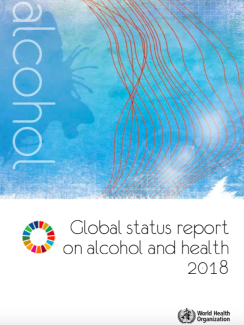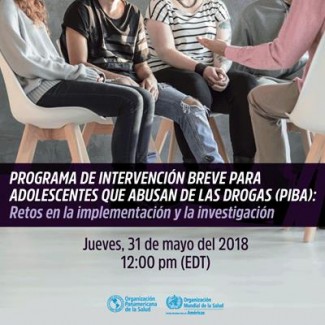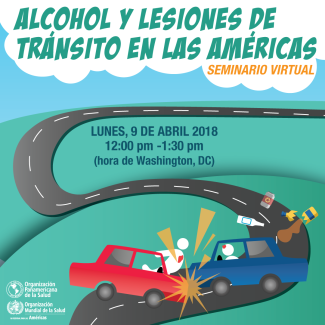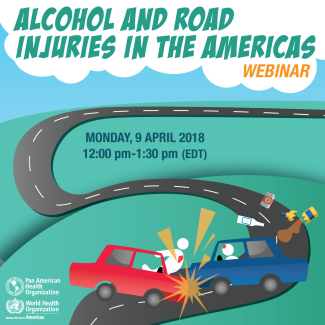Global Report on Alcohol Consumption and Health

WHO began when its Constitution came into force on 7 April 1948 – a date celebrated every year as World Health Day. It has more than 7000 people working in 150 country offices, in 6 regional offices and at its headquarters in Geneva.
WHO’s primary role is to direct and coordinate international health within the United Nations’ system.
Main areas of work:
WHO support countries as it coordinates the efforts of multiple sectors of the government and partners – including bi- and multilaterals, funds and foundations, civil society organizations and private sector – to attain its health objectives and support national health policies and strategies.


La Organización Panamericana de la Salud (OPS) extiende una cordial invitación para que el jueves 31 de mayo, a las 12:00 pm (hora de Washington, DC) participen en el seminario virtual gratuito "Programa de intervención breve para adolescentes que abusan de las drogas (PIBA): retos en la implementación y la investigación". Se analizará el proceso de desarroll

World No Tobacco Day: Tobacco and Heart Disease
Date: 31 May 2018
Every year, on 31 May, WHO and partners mark World No Tobacco Day (WNTD), highlighting the health and other risks associated with tobacco use, and advocating for effective policies to reduce tobacco consumption.


There is ample evidence that shows that the harmful use of alcohol is associated with deaths and disability caused by injuries in traffic. There is a particular interest in the Region of the Americas on the relationship between transit caused injuries associated with the use of alcohol, since the implementation of policy measures have been slow in countries.

There is ample evidence showing that the harmful use of alcohol is associated with deaths and disability caused by road injuries. The Region of the Americas is of particular interest in relation with alcohol related road injuries as data support policy actions in this area but countries have been slow in implementing them.
